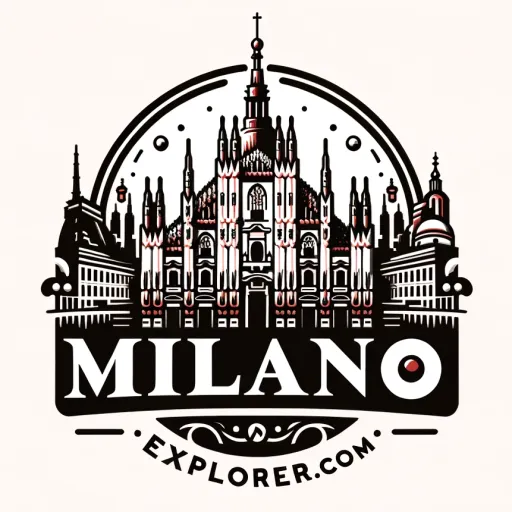Milan, the economic heartbeat of Italy, offers fertile ground for entrepreneurs looking to start a new venture.
Rich in culture and steeped in a history of trade and commerce, it’s no surprise that many are drawn to the city’s thriving business environment.
The costs associated with establishing a business in Milan can vary widely based on factors such as the size of the startup, the chosen legal structure, and the sector of operation.
However, it’s essential to account for expenses like registration fees, legal advice, and the setup of a fiscal framework.
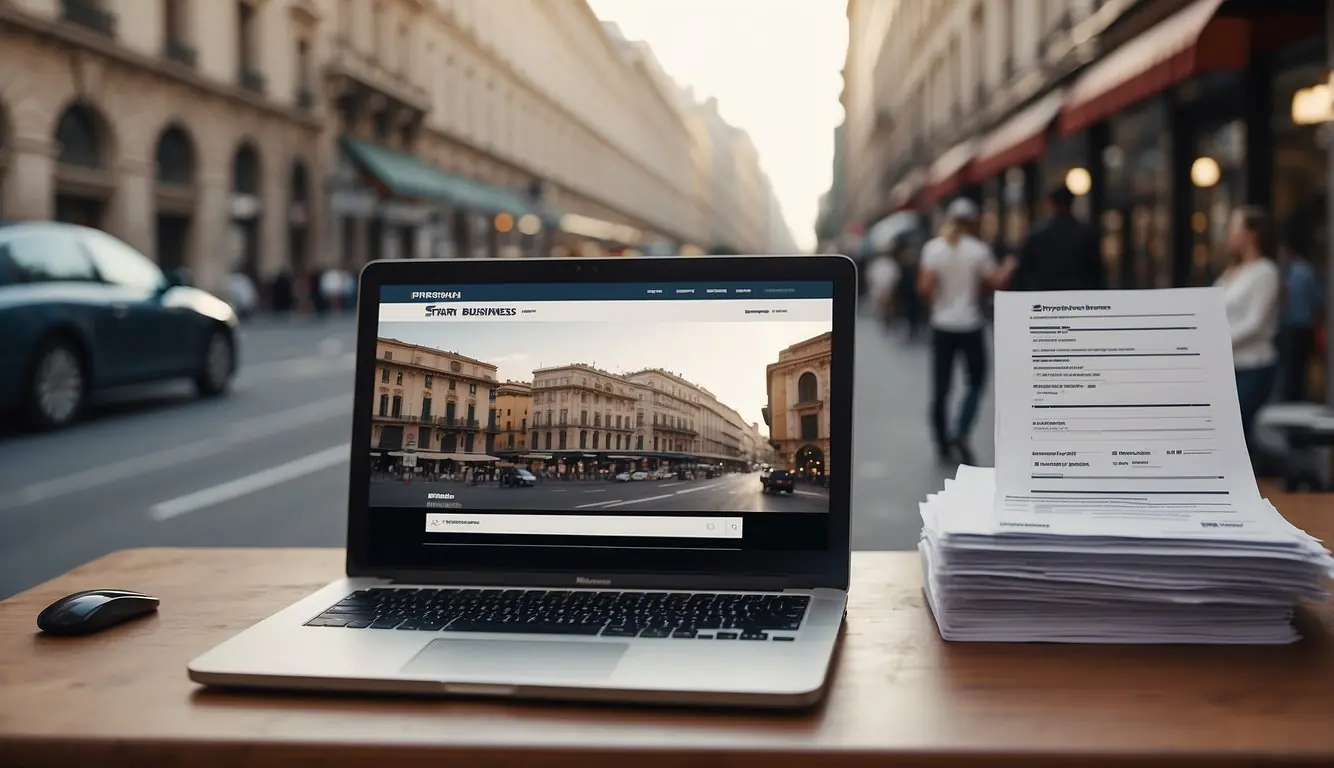
Navigating the city‘s professional networks and taking advantage of its support systems is crucial for a successful launch.
Milan’s legal and regulatory environment is designed to protect and encourage businesses, but it can also present challenges due to its complexity.
Utilizing the services offered by local accelerators and tapping into Milan’s vast pool of educated and innovative talent can help mitigate these hurdles.
Moreover, the city’s global influence and strategic relationships provide a competitive edge for businesses aiming to reach international markets.
Costs to start a business in Milan
Key Takeaways
- Milan’s vibrant culture and strong history as a business hub provide a dynamic climate for new businesses.
- Anticipating the costs and regulatory requirements is essential for setting up a successful business in Milan.
- Leveraging Milan’s professional support networks and global connections can play a pivotal role in a startup’s growth.
History of Milan as a Business Center
Milan’s journey as a business epicenter is marked by its transformation from industrial roots to a world-renowned fashion and design capital, significantly impacting its economic landscape.
From Industrial Beginnings to Fashion Capital
Initially, we witnessed Milan establishing itself as an industrial powerhouse in the late 19th to early 20th century, flourishing in sectors like automotive, chemicals, and heavy machinery.
Following World War I, despite facing periods of social unrest and economic fluctuation, Milan began to transition towards more commercial industries.
However, the city’s true metamorphosis began in the post-war era when Milan embraced the world of high fashion.
By the 1960s and 70s, fashion designers flocked to the city, leveraging the rich textile tradition of the Lombard region to craft exquisite designs.
We saw iconic figures like Gianni Versace and Giorgio Armani launching their lines, cementing Milan’s role as a global fashion capital.
This pivotal shift attracted not only the fashion glitterati but sparked widespread economic growth and diversified the city’s cultural footprint.
Information about Milan’s evolution into a high-fashion nexus can be gleaned from Invest In History Co.’s piece on Milan: Italy’s Business Center.
The Effect of Expo 2015 on Milan’s Economy
We acknowledge that the Expo 2015 served as a significant milestone for Milan, both culturally and economically.
Themed “Feeding the Planet, Energy for Life,” the exposition showcased Milan on the world stage. It catalyzed a wave of infrastructure improvements and urban renewal projects, imbuing the city with novel energy.
The event not only showcased Milan’s cultural richness but also spurred investment in diverse sectors such as technology, tourism, and hospitality leading to a marked uptick in economic growth.
Our understanding of the expo’s effect is continuous with its demonstrated capacity to enhance Milan’s global profile.
With its conclusion, we recognized a surge in international businesses and startups, seeking to leverage Milan’s enhanced status and its robust ecosystem for innovation.
For insights into the entrepreneurial spirit kindled by Expo 2015, one could explore StartUs Magazine’s examination of Milan: Italy’s Biggest Startup Hub.
Milan’s Economic Overview
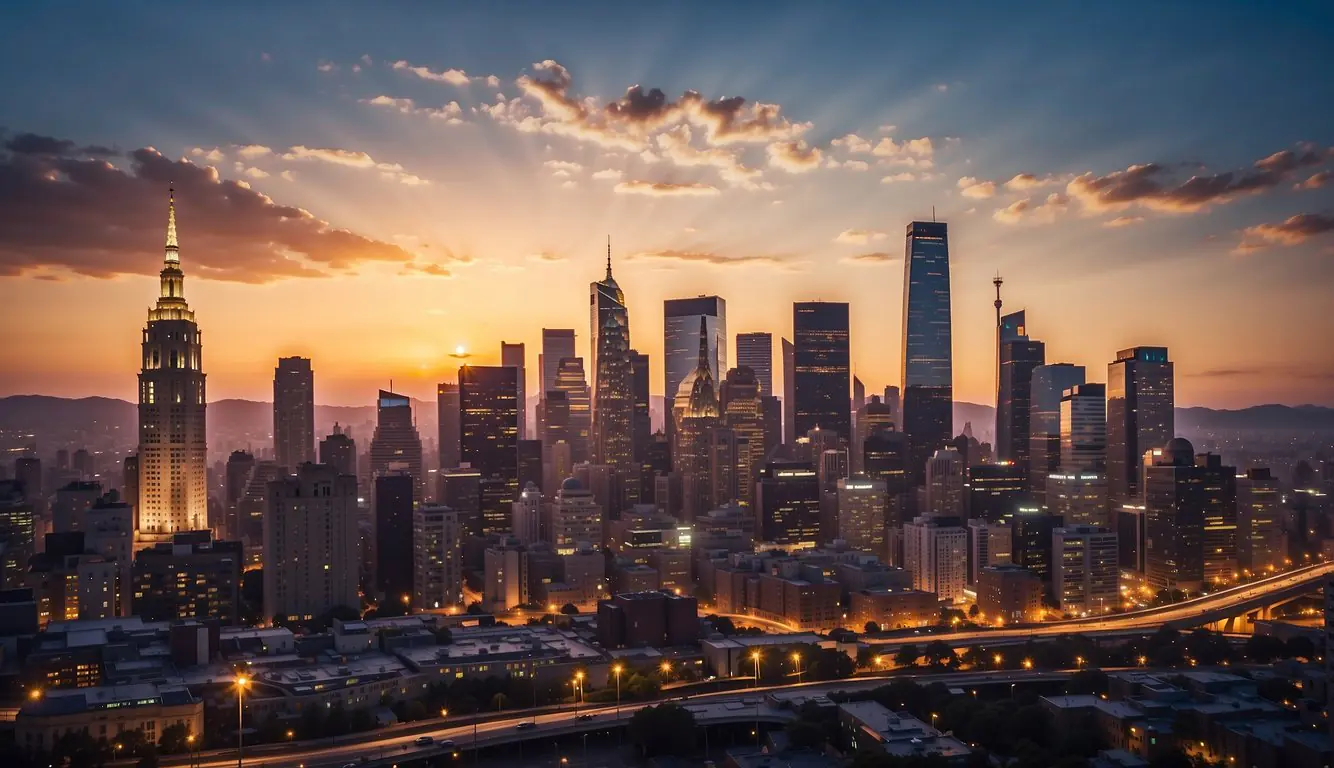
As one of the principal financial and business centers of Italy, Milan’s economy is dynamic and diverse, hosting key industries and presenting significant GDP contributions.
Key Industries and Sectors
Milan leads Italian cities in sectors such as fashion, finance, and manufacturing.
The city is particularly renowned for its high-end fashion brands and bustling fashion week events.
In addition, a substantial portion of Italy’s finance sector is concentrated in Milan, including many banks, investment firms, and the foremost Italian stock exchange.
The manufacturing sector is diversified, producing chemicals, automobiles, and textiles, with a firm emphasis on quality and design.
Milan’s economy is also bolstered by emerging sectors like digital technology, biotech, and the energy industry.
Our participation in the food industry remains robust with a focus on quality foodstuffs.
Moreover, Milan stands as a critical hub for marketing services and creativity, with numerous agencies contributing to the innovative atmosphere.
GDP and Revenue Insights
Milan’s GDP is indicative of its economic prominence, contributing significantly to the Italian economy.
The city’s GDP reflects its industrial strength and its role as a center for businesses, including startups, that leverage its strategic geographic position in Europe.
With a focus on digital entrepreneurship and biotech, new revenue streams are continuously fostered, complementing traditional sectors.
This mix underscores our city’s adaptable economic landscape and constant growth in sectors that are key to Milan’s identity and revenue generation.
The Role of Startups and Accelerators
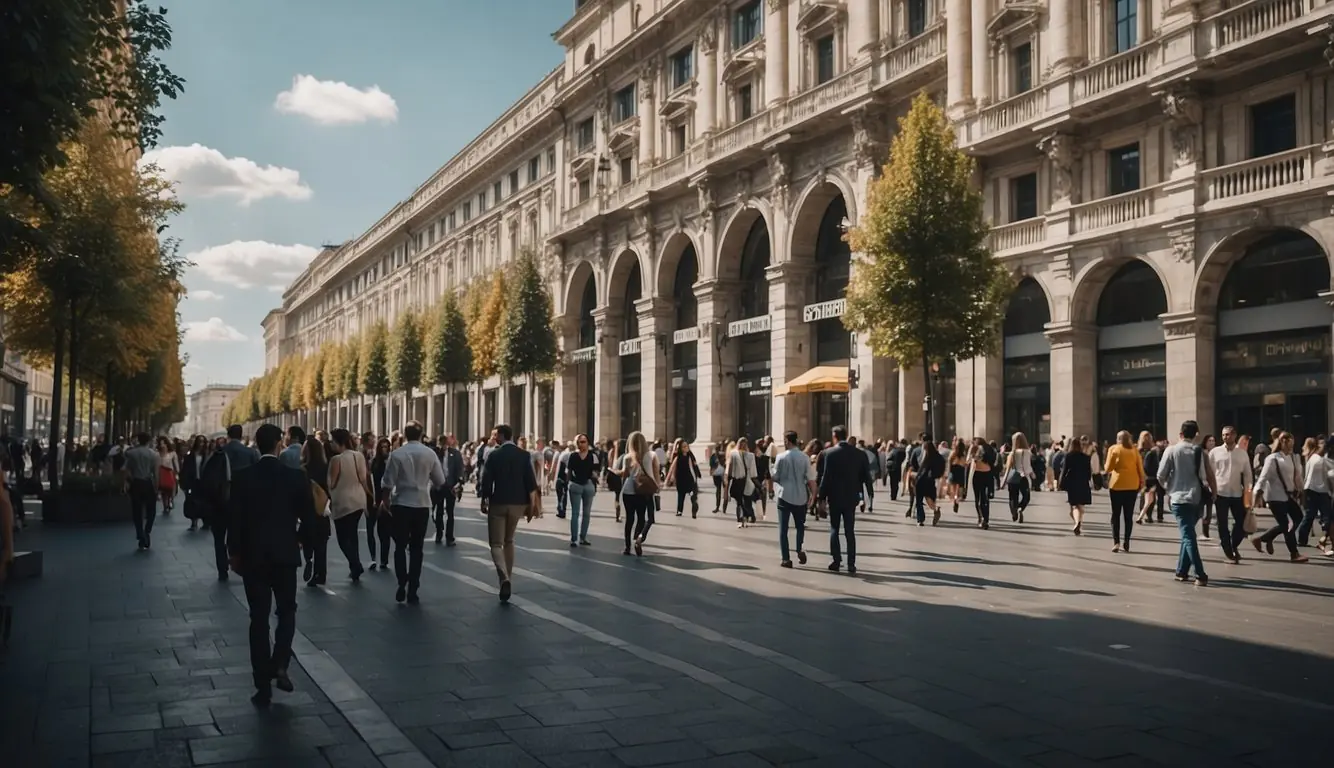
In Milan’s vibrant economic landscape, startups and accelerators are pivotal in nurturing innovative ideas and transforming them into successful enterprises.
Success Stories from Milan
Milan has fostered numerous success stories, demonstrating the profound impact accelerators have on startup growth and development.
For instance, the Fashion Technology Accelerator has been instrumental in launching fashion technology businesses by offering a 6-month program and investing 40K€ for each company, with an equity stake of 10%.
The city is not only Italy’s financial hub but also a hotspot for creative talent, which is why it has become a preferred location for many promising startups.
The evidence of success is also seen with Digital Magics, an incubator that since its inception in 2004, has significantly aided tech startups and SMEs by providing assistance and capital to foster innovation.
By leveraging resources from the local ecosystem, these entities contribute to Milan’s reputation as a prominent startup hub.
Influence on Local and European Ecosystem
Our ecosystem’s influence extends beyond local boundaries into the broader European market.
Programs like Politecnico di Milano’s Polihub cater to innovative startups and scale-ups, integrating them into an ecosystem rich with opportunities and connecting them with venture capital funds and crowdfunding platforms.
By doing so, these accelerators and incubators not only elevate the local scene but also enhance Milan’s standing within the European innovation landscape.
This ecosystem is powered by a synergistic relationship between startups, accelerators, incubators, and investors.
Together, we help transform breakthrough ideas into viable businesses, promoting a fertile ground for future innovations.
The wealth of opportunities in Milan attracts talent from diverse industries, bolstered by funding options from both local and international investors.
Innovation and Technology
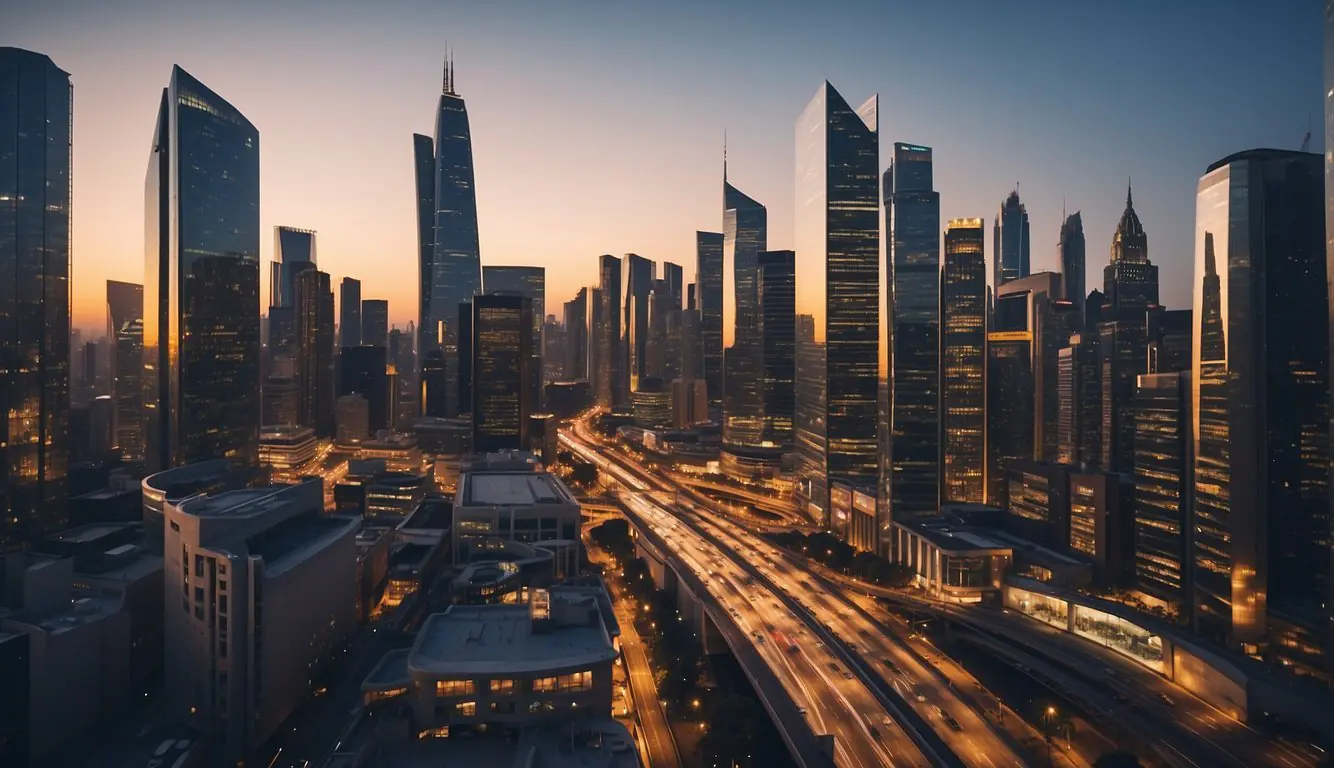
Milan’s reputation as a hub for technological innovation makes it a vibrant landscape for businesses looking to integrate advanced technology and digital solutions.
This section delves into Milan’s thriving tech environment and explores the fusion of business and artificial intelligence (AI), which are pivotal for startups and established corporations alike.
Milan’s Tech Landscape and Key Players
Milan is a dynamic ecosystem bustling with cutting-edge startups and tech giants.
Companies like IBM, Microsoft, and Google have marked their presence, fostering an environment ripe for innovation.
These industry leaders, along with local incubators and accelerators, provide crucial resources for burgeoning businesses.
In addition to multinational corporations, the city is home to Politecnico di Milano, one of Italy’s most prestigious technical universities.
This institution is a significant contributor to the talent pool and technological developments in the area.
The strong synergy between educational institutions and businesses has cultivated a fertile ground for digital and fintech startups, many of which have gained prominence for their novel software solutions.
Milan’s tech scene wouldn’t be complete without mentioning Talent Garden Milano – Merano, a co-working campus dedicated to digital and tech (StartUs Magazine).
This space exemplifies the dedication to fostering a smart working environment and a communal atmosphere for digital entrepreneurs.
The Intersection of Business and AI
At the nexus of business and technology lies AI, an area where Milan shows promise and prowess.
Gartner, a leading research and advisory company, alongside consulting firm Deloitte, highlight Milan’s offerings in AI resources and applications that drive efficiency and innovation within the startup ecosystem.
One noteworthy example is MotorK, a Milan-based digital solutions provider in the automotive sector that leverages AI to refine customer experiences and dealership processes.
Such integration of AI into various business strategies underscores the potential for growth and provides a competitive edge to companies operating in Milan’s fertile economic landscape.
AI’s role extends beyond just software—fintech companies in Milan are employing AI to revolutionize financial services, and the integration of AI in various sectors is a testament to the city’s forward-thinking mindset.
Financial Climate and Opportunities
In Milan, starting a business is underpinned by a robust financial sector and a wealth of opportunities.
The city’s powerhouse economy, driven by sectors such as finance and high-tech industries, creates an environment conducive to growth and innovation.
Access to Capital and Finances
Milan’s economic landscape boasts a dynamic range of financing options for startups.
Entrepreneurs can tap into seed funding and various loan programs tailored for new ventures.
Business angels and venture capitalists actively seek potential growth companies, with angel investors providing not just capital but valuable mentorship as well.
For those looking to leverage professional networks and expertise, platforms like Talent Garden Milano – Merano offer smart working spaces for digital entrepreneurs to connect and thrive.
Additionally, the presence of financial institutions means establishing a bank account and accessing credit is streamlined, enabling businesses to manage their finances efficiently.
Support in understanding taxation and VAT obligations also provides startups with the necessary knowledge to navigate the financial waters of entrepreneurship in Milan.
Navigating the Financial Ecosystem
Understanding the nuances of Milan’s financial ecosystem is crucial.
The city’s status as the financial capital of Italy brings with it access to international markets and potential for securing investment.
The Financial Times notes the city’s receptiveness to young businesses, which benefits from tax exemptions and a supportive regulatory framework.
Furthermore, dedicated agencies and service providers, such as Adecco, can offer tailored insight into the local financial landscape.
Whether securing financing through traditional banks or exploring innovative funding options, Milan presents a fertile ground for investment and economic activity.
With the proper funding and financial planning, startups in Milan can harness the city’s vibrant economy for sustainable growth.
Education, Research, and Development
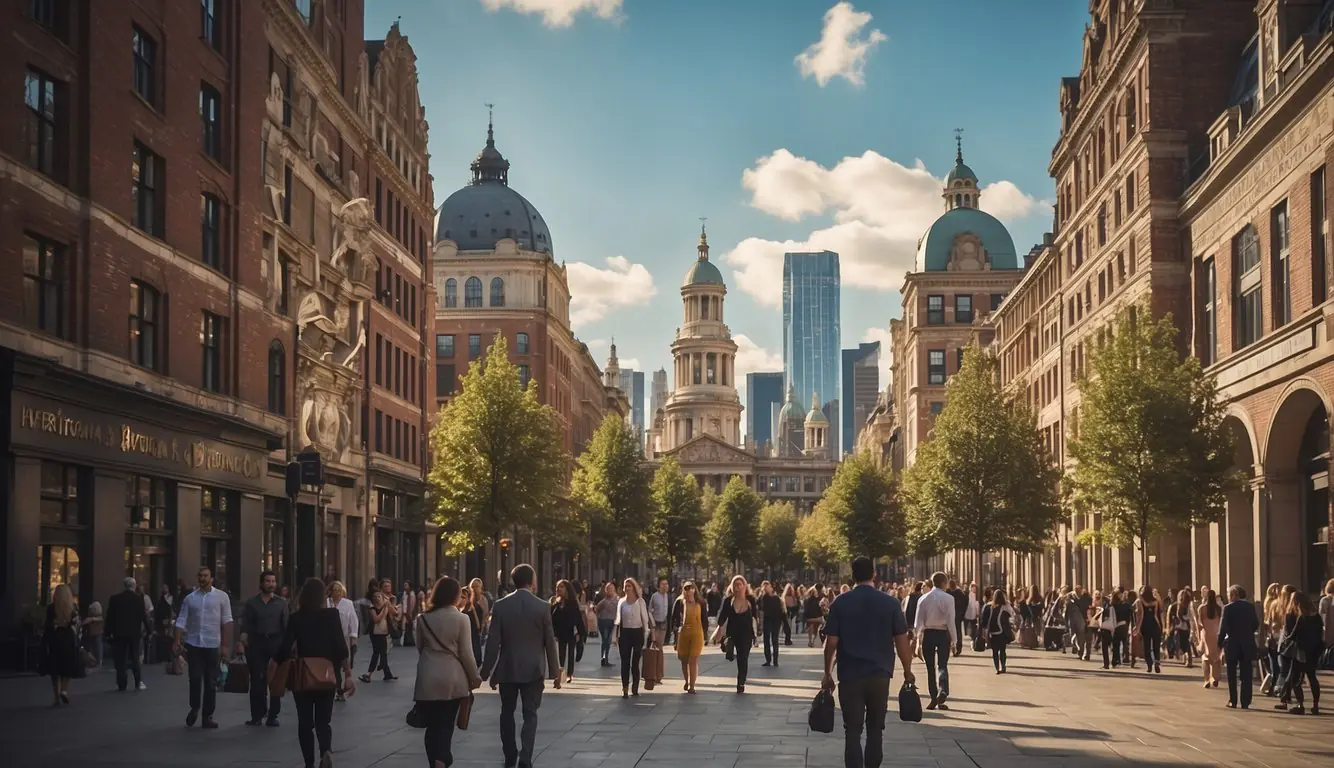
Milan’s prowess in education, research, and development is a cornerstone for business growth and innovation.
We recognize the vital role universities play in nurturing the next generation of entrepreneurs and the impact of R&D on the startup ecosystem.
Universities and Their Role in Business Growth
Milan’s universities, renowned for their academic excellence, are instrumental in driving the city’s economic development.
Among these, Bocconi University excels in business education, supporting budding entrepreneurs with initiatives such as SpeedMiUp, which aims to assist new businesses from inception to maturity.
Moreover, the Politecnico di Milano, one of Europe’s top technical universities, enriches the business scene with a strong emphasis on innovation and technology-transfer activities.
The MBA programs here and at other institutions pave the way for cutting-edge ventures, imparting crucial knowledge and strategic acumen.
R&D Contributions to the Startup Ecosystem
Investing in research and development (R&D) is paramount for fostering a thriving startup ecosystem in Milan.
The city boasts an impressive number of innovative ventures, particularly in sectors like biotech and life sciences, which are bolstered by the presence of high-caliber facilities and expertise.
Our universities, including Bocconi and Politecnico di Milano, are at the heart of this advancement, collaborating with businesses to transform research into practical solutions with wide-reaching impacts.
This symbiosis between academia and industry not only fuels economic growth but also establishes Milan as a premier destination for R&D in Europe.
Legal and Regulatory Environment
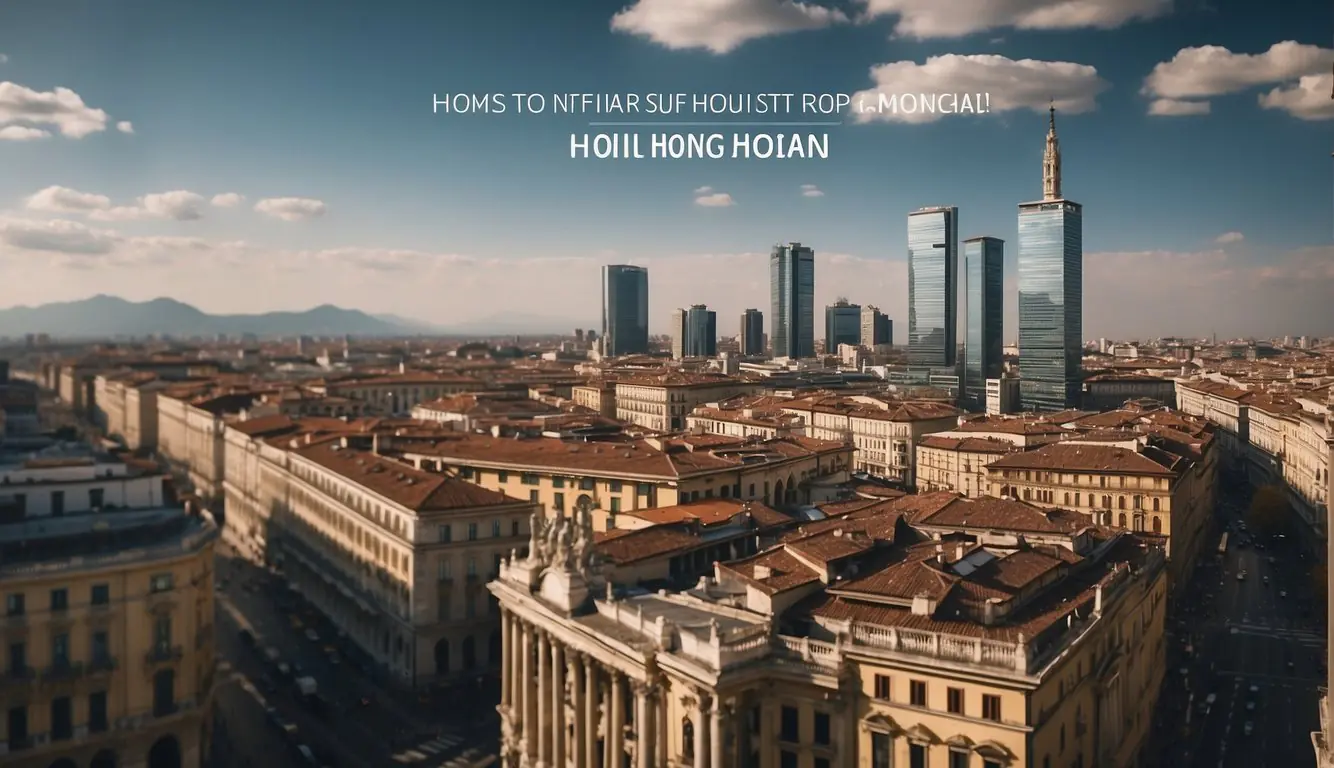
When considering the launch of a startup in Milan, it’s imperative that we grasp the complexities of the local legal framework and prepare for the bureaucratic processes. These are critical to ensuring compliance and can significantly impact the timeline and cost of starting a business.
Understanding Local Legislation for Businesses
In Italy, various legal structures are available for entrepreneurs.
The choice depends on factors such as the size and scope of the business as well as the level of liability we are willing to assume.
The three common types include Sole Proprietorship (Ditta Individuale), Partnership (Società di Persone), and Corporation (Società di Capitali).
For more detailed information, it’s beneficial to refer to a simplified guide to ensure compliance which is tailored to the Italian context.
To operate lawfully in Milan, specific registrations and filings are crucial.
Depending on our business activity, we might need to register with the Chamber of Commerce (Registro delle Imprese), the Tax Office (Agenzia delle Entrate), and the Social Security Administration (INPS).
Familiarity with local legislation helps mitigate the risk of non-compliance.
Transparency and Bureaucracy Challenges
Transparency in procedures is vital, yet we are likely to encounter bureaucratic challenges when starting a business in Milan.
Streamlining interactions with public offices is part of the best practices for entrepreneurs.
Utilizing services that address these bureaucratic processes can be advantageous.
For instance, the Founder Institute in Milan offers networking opportunities and guidance through the maze of local bureaucracy.
We must be prepared to navigate a series of procedural requirements, from obtaining permits to completing mandatory reporting.
It’s an intricate dance with Italian bureaucracy, but with diligence and the right resources, we can manage this aspect with confidence.
By maintaining transparent records and following established procedures, we lay the groundwork for a successful business venture in this vibrant, historical city.
Professional and Support Networks
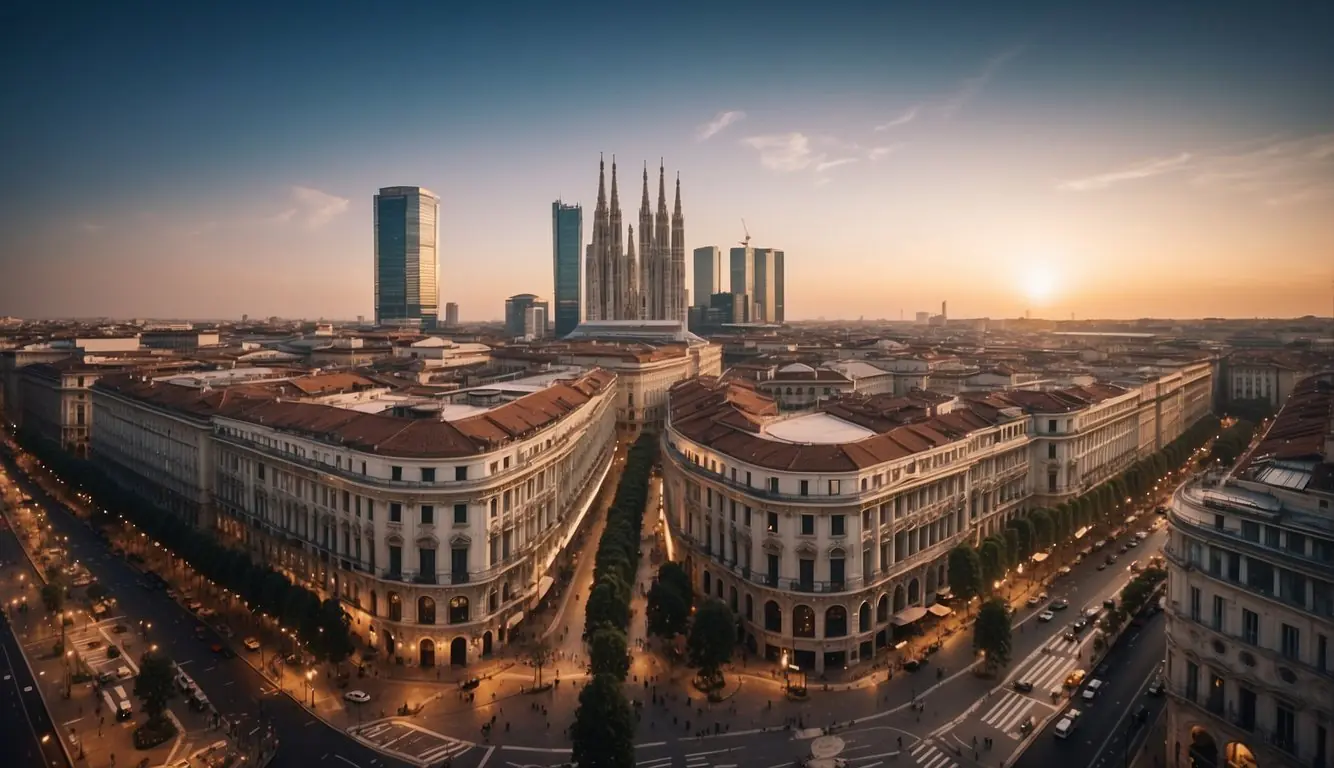
In Milan, establishing a robust professional and support network is crucial for the success of any new venture.
We recognize the value of connecting with like-minded individuals and groups that can provide guidance and resources.
Building Connections with Startup Italia! and Other Groups
Startup Italia! offers a platform for us to engage with an extensive network of entrepreneurs and professionals in Milan.
Discussing ideas, sharing experiences, and seeking advice through these channels can significantly accelerate our business development.
It’s also beneficial to liaise with local co-working spaces and innovation hubs like Talent Garden Milano – Merano, which are central to the digital and tech community.
Here, we can interact and collaborate with other startups and teams, leveraging their experiences and networks.
The Importance of Mentorship and Networking Events
Attending networking events, such as those organized by Startup Grind Milano, provides us with the opportunity to connect with potential mentors who have a wealth of experience in launching startups in Milan.
Mentorship is an invaluable asset as it can help us navigate the complexities of starting a business.
Participating in workshops and talks at venues such as Fablab Milano and FWLab, enriches our skill sets and keeps us abreast of the latest industry trends and best practices.
Global Influence and Relationships

As we explore the entrepreneurial climate of Milan, we must consider its strategic importance in Italy’s economy and its expanding influence in the global marketplace.
Italy’s Position in the International Market
Italy, and Milan in particular, holds a pivotal position in the European and global markets, especially in sectors like finance and fashion.
Milan has established itself not just as Italy’s economic powerhouse but also as a key player on the international stage, connecting European markets with the world.
The city’s well-developed financial infrastructure is essential for investment activities, making it comparable to other major cities such as London.
Expanding Beyond Borders: Partnerships and Outreach
Milan’s businesses are not confined to local opportunities but are proactively extending their reach across borders.
This involves forming strategic partnerships and fostering client relationships beyond Italy, including influential hubs like San Francisco and London.
Networking events in Milan often attract international investors, which are indispensable for Italian companies aiming to secure their presence in both European and global markets.
The city’s thriving tourism industry further amplifies its global relationships, inviting a diverse set of opportunities for collaboration with cities like Naples and Rome.
SMEs and Local Businesses
In Milan, SMEs, local businesses, and young entrepreneurs are pivotal, consistently contributing innovation and diversity to the city’s vibrant economy.
The Backbone of Milan’s Economy
Small to medium-sized enterprises (SMEs) form the crux of Milan’s economy, fostering economic growth and employing a sizeable portion of the workforce.
These businesses range from family-owned boutiques to tech startups, all thriving in this cosmopolitan city.
They drive innovation and reflect the dynamic spirit of Milan. Local businesses also represent a link between traditional Italian craftsmanship and contemporary entrepreneurial spirit, often resulting in products and services recognized worldwide.
Challenges and Advantages for Small Companies
Small companies and new businesses in Milan face both challenges and opportunities.
Navigating the bureaucratic procedures to set up a business can be daunting for budding entrepreneurs.
Yet, once established, local corporations benefit from Milan’s status as an international commercial hub with a rich network of potential collaborators and clients.
The city’s global connectivity draws numerous headquarters for multinational corporations, providing small businesses with a broad audience and diverse market niches to explore.
The local government offers robust support services with the aim of simplifying the process of getting started and encouraging innovation, as showcased by the free of charge services available to businesses looking to expand in Milan.
Conclusion
Launching a business in Milan holds promising avenues for entrepreneurs seeking growth and sustainability in a dynamic economic landscape.
We recognize Milan’s dedication to fostering a business-friendly environment, bolstered by its commitment to innovation and a future-oriented economy. Such an ecosystem is well-aligned with the city’s efforts towards addressing climate concerns and promoting eco-conscious practices.
Key advantages for companies in Milan include a broad spectrum of support services, encompassing incubators, co-working spaces, and access to private and institutional investors.
These provisions not only streamline business operations but also nurture expansion and growth prospects.
Starting your venture here also means tapping into a rich cultural and commercial heritage, set within Italy’s financial and fashion epicenter.
Our advice to prospective businesses is to thoroughly assess Milan’s diverse array of resources.
For detailed guidance on company setup procedures in Milan, explore the services offered by YesMilano.
For a closer look at the startup landscape and necessary steps for establishing your business presence in this vibrant city, consider insights from StartUs Magazine.
We are steadfast in our view that Milan’s fertile ground for business endeavors, coupled with Italy’s rich tradition of enterprise, provides an excellent setting for long-term success.
We support this venture with practical tips and resources to ensure a smooth start and sustainable operation—let’s navigate this entrepreneurial journey together in Milan.
Frequently Asked Questions
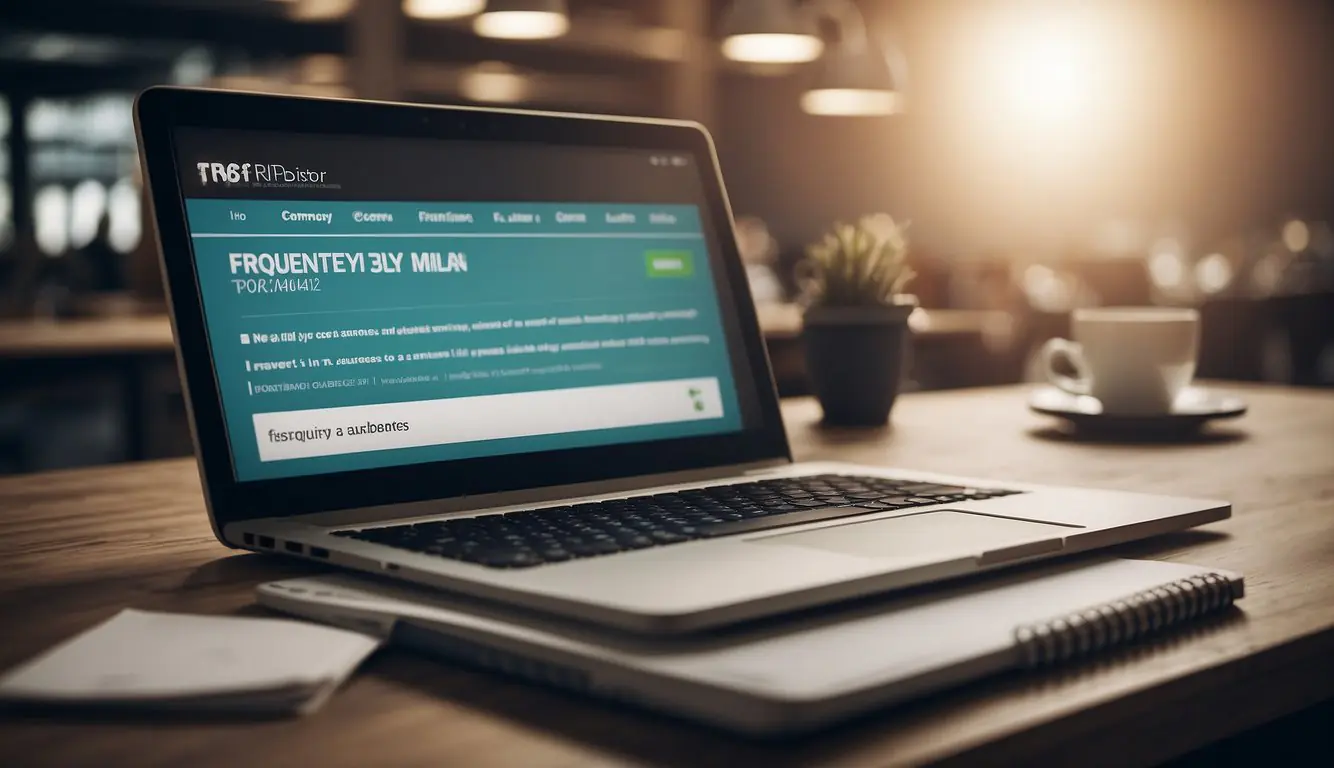
In embarking on the entrepreneurial journey of starting a business in Milan, we’ll address vital considerations including legal requirements, capital, registration processes for foreigners, ongoing costs, and the steps for obtaining a business license in this dynamic Italian city.
What are the legal requirements for starting a business in Milan?
To start a business in Milan, one must adhere to Italian legal structures, which may include establishing a partnership or incorporating a company.
We must select the appropriate legal form, such as an S.p.A. or S.r.l., and register with the relevant Italian authorities. For details on setting up different company types, we may explore how to set up a company in Milano.
How much capital is needed to initiate a startup in Milan?
The required startup capital in Milan can vary greatly, depending on the business type and scale.
Some corporate structures may necessitate a minimum share capital; for instance, a private limited company (S.r.l.) requires at least €1. The costs may increase with office space, staffing, and operational needs.
It’s worth looking into financial services that can simplify the process, such as opening a business account online with wamo, to manage finances efficiently.
What is the process for a foreigner to register a company in Milan?
Foreigners must follow a structured process to register a company in Milan, starting with obtaining a tax code (codice fiscale) and registering with the Chamber of Commerce.
It is crucial to navigate the complexities of Italian bureaucracy, and often, seeking local expertise eases the process. Milan’s business environment provides an overview of what to expect.
What are the ongoing costs for maintaining a company in Milan?
Ongoing costs in Milan include corporate taxation, social security contributions, rent, utilities, and staff salaries.
Maintaining a company also involves regular legal and accounting services to ensure compliance with Italian law. These costs will naturally vary based on company size and operations.
Can a US citizen legally start a business in Milan, and what special conditions apply?
Yes, a US citizen can legally start a business in Milan.
There may be specific requirements like obtaining a stay permit and additional steps for tax compliances. Bilateral agreements, such as the Double Taxation Treaty, may impact financial considerations. We’ll need to stay abreast with the visa and legal nuances tied to our nationality.
What are the necessary steps to obtain a business license in Milan?
Obtaining a business license in Milan entails filing an application with the local municipality and meeting sector-specific regulations.
This process may involve inspections and obtaining additional permits, such as health and safety clearances.
It’s necessary to understand the full scope of local regulations, which can vary depending on the business activity.
